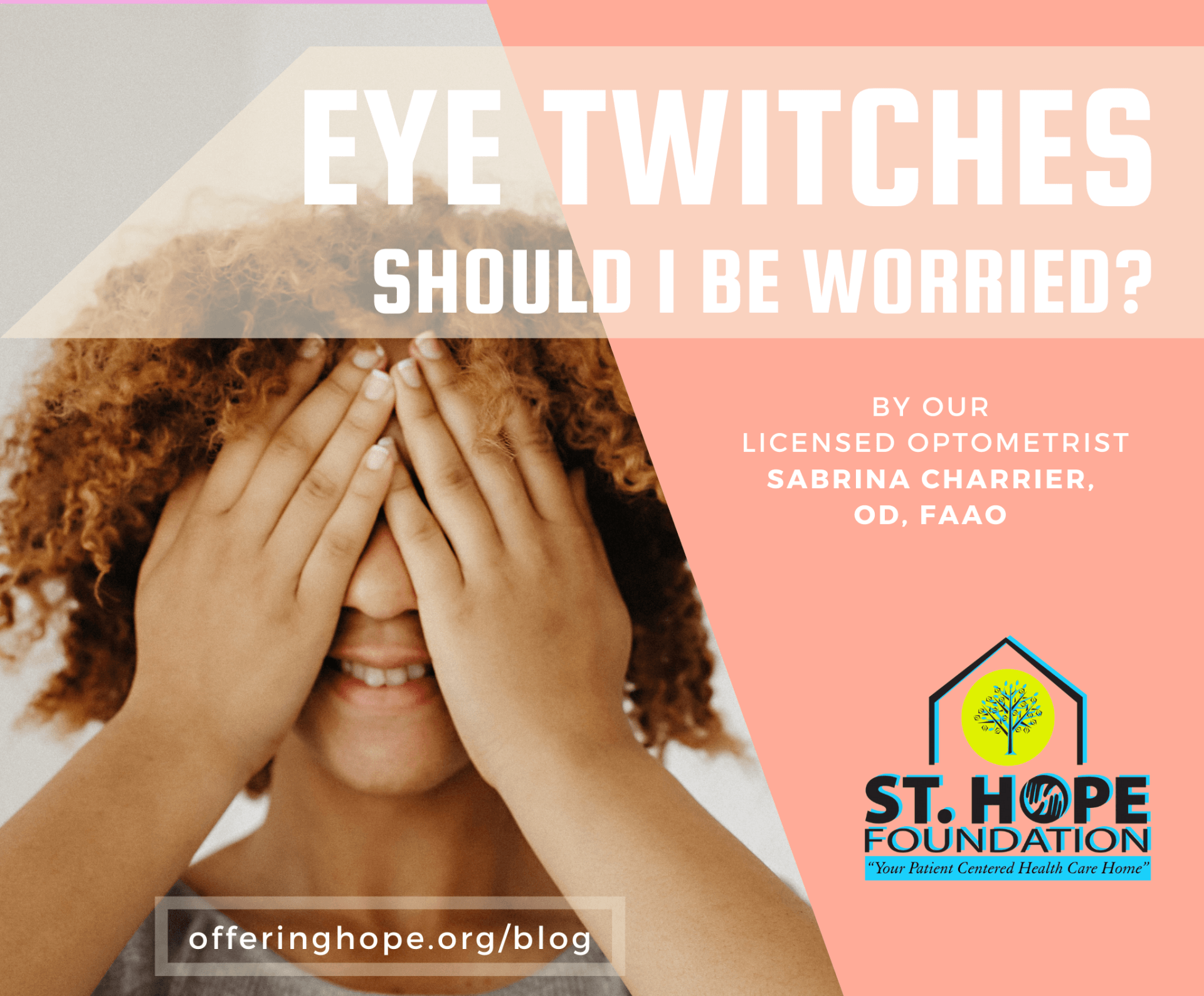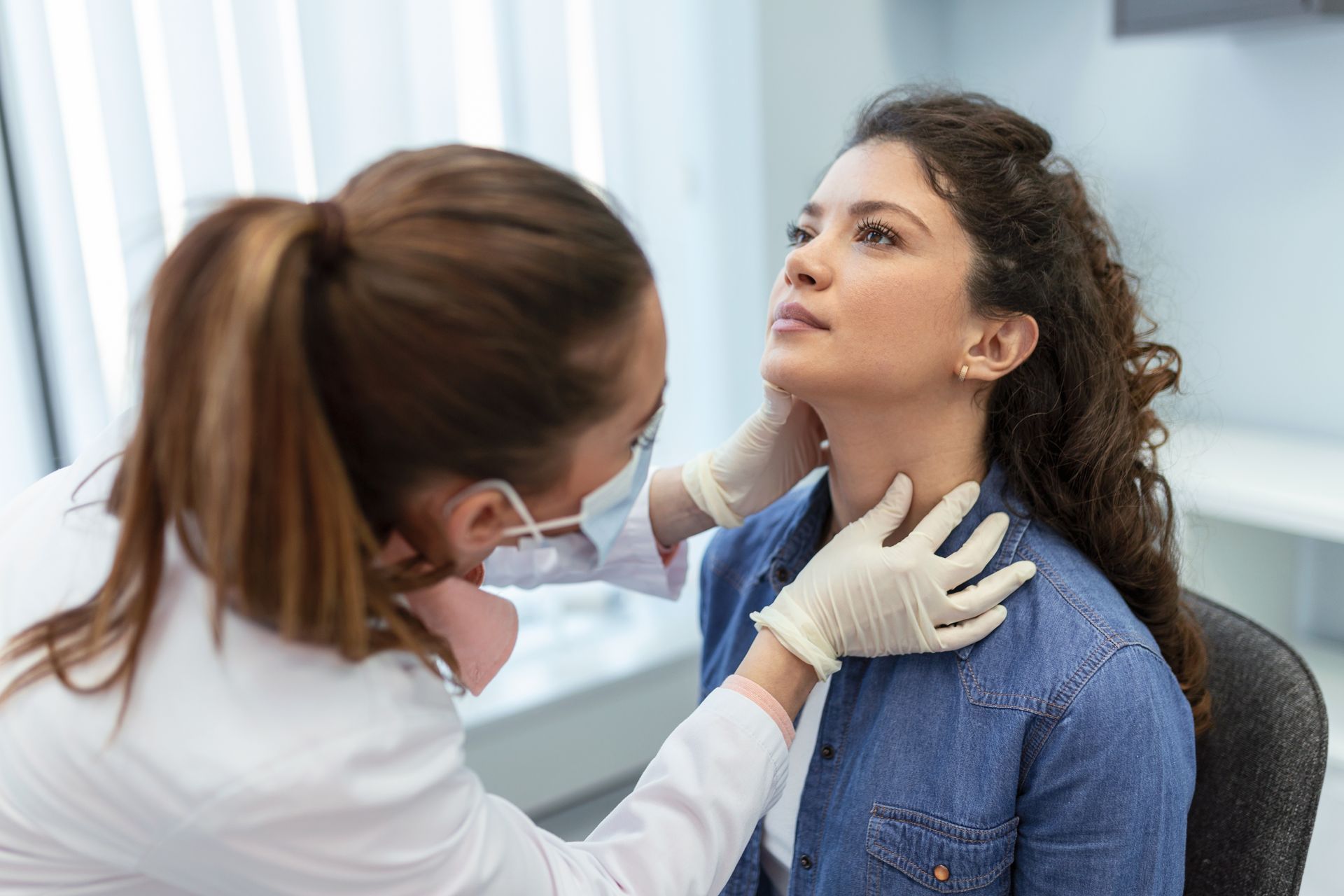Recent Posts
Eye Twitches-Should I Be Worried?

Your eye twitching is an involuntary spasm. There are several different ways your eyelids may twitch and some situations may be more serious than others. First, let’s discuss the three different ways your eye may twitch.
Myokymia- This is a benign muscle spasm that usually happens because of an increase in stress, and increase in caffeine, or a decrease in sleep. It can occasionally occur because of irritation to the cornea as well. This will typically go away on its own but can last up to several months.
Blepherospasm- This occurs as an adult and can cause your left, right, or both eyes to close.
Hemifacial spasm-This is much more rare and causes one side of your face to contract or twitch.
There isn’t one known cause of why it happens. Most reasons are not a serious issue and will self resolve. Some of those reasons are due to alcohol consumption, bright lights, caffeine, fatigue, corneal irritation, smoking, stress, blepharitis, dry eyes, nutritional deficiency, or medications and drugs.
There are systemic reasons that can cause it as well. Your eyelid twitch may be more of a symptom of a neurological problem such as Bell’s palsy, dystonia, multiple sclerosis, Parkinson's disease, Tourette syndrome, nerve compression, or stroke.
So when should you seek medical help? If your twitching lasts for more than a week, if you can’t reopen your eye, if you have additional twitching in your face or body, if there is inflammation or discharge of your eye, or if your upper eyelid droops. It is important to pay attention to the other symptoms as well. If your other symptoms include drooping of your face, arm weakness, speech difficulty, or temporary loss of vision, you may be having a transient ischemic attack (TIA). This is like a mini-stroke and possibly a precursor to a larger stroke.
Often you can help the twitch go away by reducing your caffeine intake, reducing your stress level, and increasing your sleep. Limiting screen time and using artificial tears can help in addition to using warm compresses. In more severe cases, Botox and surgery can be considered. Be sure to discuss your eyelid twitch with your doctor if it doesn’t go away within a couple of weeks of treatments at home.









